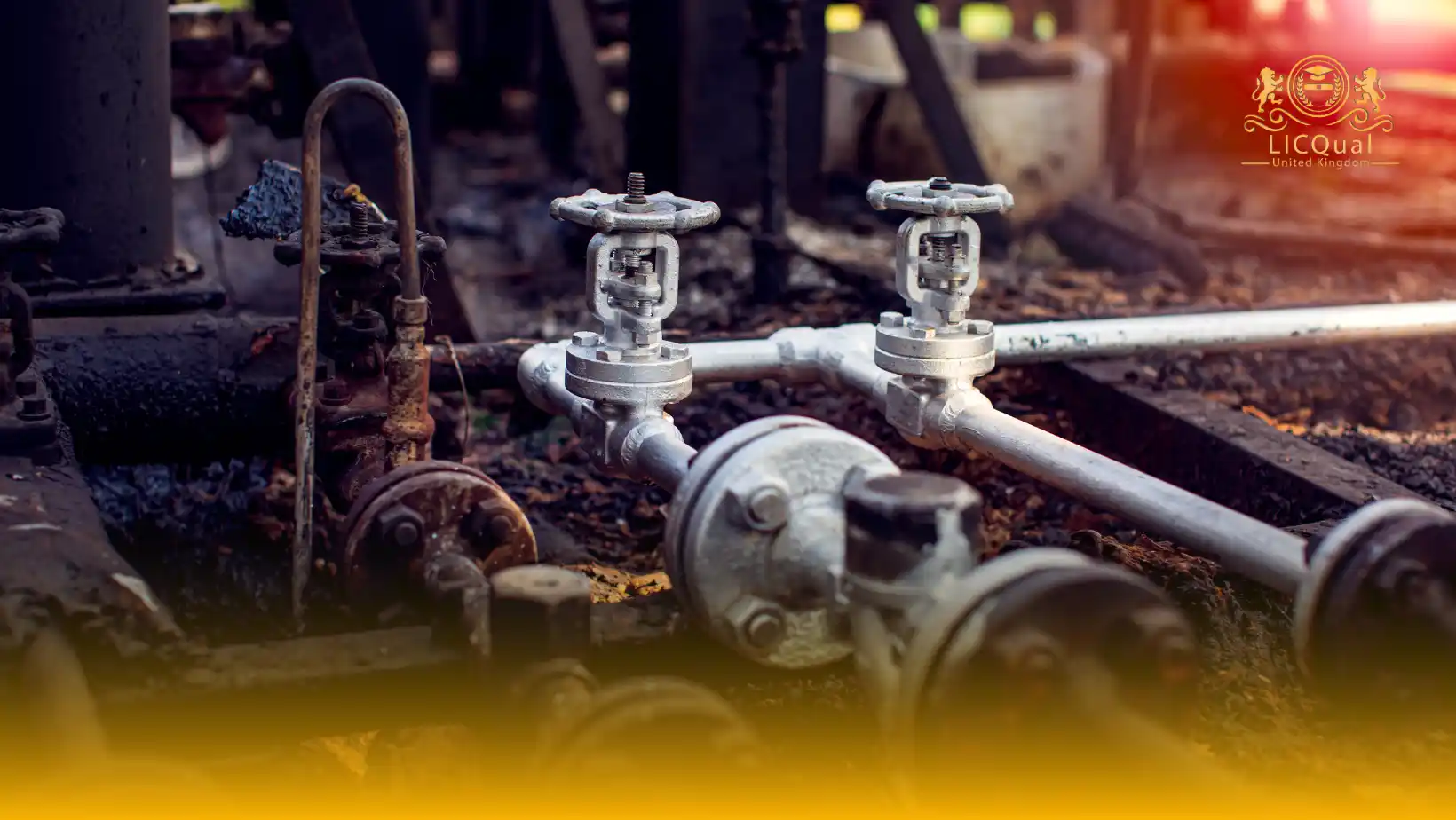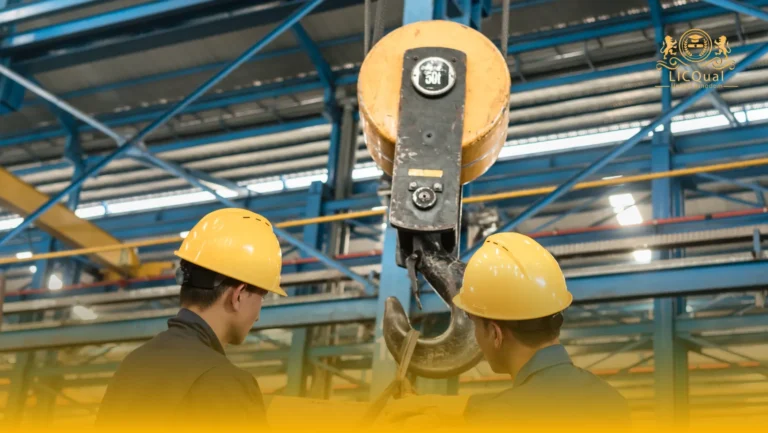Elevate your expertise in the piping industry with the LICQual Level 6 Diploma in QC Piping Inspector, an advanced, internationally recognized qualification crafted for professionals aiming to lead in quality control (QC) inspection. This prestigious diploma is ideal for experienced individuals seeking to master complex piping systems in high-stakes sectors like oil and gas, petrochemicals, and infrastructure.
Whether you aspire to become a senior QC inspector, quality manager, or project lead, this course equips you with cutting-edge skills in advanced inspection techniques, non-destructive testing (NDT), and compliance auditing.
Delivered through dynamic, industry-focused modules, the LICQual Level 6 Diploma blends in-depth theoretical knowledge with practical, hands-on applications, guided by seasoned industry experts. You’ll explore advanced topics like piping design, international standards, and project quality management, preparing you to tackle real-world challenges with precision.
With flexible learning options—online, in-person, or blended—this program is designed to fit the schedules of busy professionals. Take the next step toward a leadership role in piping quality control and join this transformative course to make a lasting impact in the industry.
The LICQual Level 6 Diploma in QC Piping Inspector offers an advanced, comprehensive curriculum to empower you with the expertise to lead quality control inspections in piping systems. This program covers critical areas, including engineering design for high-pressure piping, advanced NDT techniques, project quality management, risk assessment, and compliance with international standards like ASME, API, ANSI, and ISO.
Through practical case studies, hands-on exercises, and a capstone project in a live or simulated industrial setting, you’ll develop the skills to ensure piping projects meet stringent safety, quality, and regulatory requirements in industries such as energy, construction, and manufacturing.
Tailored for professionals with experience in piping or quality control, this diploma is perfect for those aiming to advance into senior QC roles or specialize in high-level inspection processes. Flexible learning formats, including online and blended options, ensure accessibility for working professionals.
Upon completion, you’ll earn a globally respected LICQual Level 6 Diploma, validating your ability to lead complex piping inspections and boosting your career prospects. Join this industry-leading program to become a trusted expert in QC piping inspection and excel in a competitive, fast-evolving field.
Course Overview
Qualification Title
LICQual Level 6 Diploma in QC Piping Inspector
Total Units
6
Total Credits
120
GLH
480
Qualification #
LICQ2200545
Qualification Specification
To enroll in the LICQual Level 6 Diploma in QC Piping Inspector applicants must meet the following criteria:
|
Qualification# |
Unit Title |
Credits |
GLH |
|---|---|---|---|
|
LICQ2200545-1 |
Advanced Piping Inspection Strategies and QA/QC Management |
20 |
80 |
|
LICQ2200545-2 |
Non-Destructive Testing (NDT) Methods and Interpretation |
20 |
80 |
|
LICQ2200545-3 |
Welding Procedure Qualification and Welder Certification Audit |
20 |
80 |
|
LICQ2200545-4 |
Risk-Based Inspection and Failure Analysis in Piping Systems |
20 |
80 |
|
LICQ2200545-5 |
Quality Audits, Compliance, and International Regulatory Frameworks |
20 |
80 |
|
LICQ2200545-6 |
Capstone Project: Comprehensive QC Inspection Plan for a Live/Simulated Project |
20 |
80 |
By the end of this course, applicants will be able to:
1. Advanced Piping Inspection Strategies and QA/QC Management
- Develop and implement advanced piping inspection strategies to ensure the integrity and compliance of complex piping systems.
- Lead QA/QC management processes, integrating quality assurance plans into piping projects to meet industry standards.
- Evaluate the effectiveness of inspection strategies through data analysis and continuous improvement techniques.
- Coordinate with project teams to align inspection protocols with project objectives, ensuring high-quality outcomes.
2. Non-Destructive Testing (NDT) Methods and Interpretation
- Apply advanced NDT methods, such as phased array ultrasonic testing, computed radiography, and eddy current testing, to evaluate piping system integrity.
- Interpret complex NDT results to identify critical defects and assess their impact on piping safety and performance.
- Design tailored NDT plans for specific piping projects, optimizing accuracy and compliance with international standards.
- Implement best practices for safe and efficient NDT operations in quality control inspection processes.
3. Welding Procedure Qualification and Welder Certification Audit
- Evaluate welding procedure specifications (WPS) and procedure qualification records (PQR) to ensure compliance with industry standards like ASME and API.
- Conduct welder certification audits to verify welder competency and adherence to approved welding procedures.
- Identify and address deficiencies in welding procedures or welder performance to maintain piping quality and integrity.
- Develop documentation and audit reports to support welding quality control and regulatory compliance.
4. Risk-Based Inspection and Failure Analysis in Piping Systems
- Perform risk-based inspection (RBI) assessments to prioritize inspection activities based on potential risks and failure modes in piping systems.
- Conduct failure analysis to identify root causes of piping system defects or failures and propose preventive measures.
- Develop risk mitigation strategies to enhance the safety, reliability, and longevity of piping installations.
- Integrate RBI principles into quality control plans to optimize inspection efficiency and project outcomes.
5. Quality Audits, Compliance, and International Regulatory Frameworks
- Plan and execute quality audits to verify compliance with international standards (e.g., ASME, API, ISO) and project specifications.
- Analyze audit findings to identify non-conformities and implement corrective actions to ensure piping system quality.
- Interpret and apply international regulatory frameworks to maintain legal and contractual compliance in piping projects.
- Advise project stakeholders on regulatory requirements and best practices to avoid compliance-related risks.
6. Capstone Project: Comprehensive QC Inspection Plan for a Live/Simulated Project
- Design and execute a comprehensive QC inspection plan for a live or simulated piping project, integrating advanced inspection and QA/QC techniques.
- Apply NDT, risk-based inspection, and welding audit methodologies to ensure project quality and compliance.
- Produce detailed inspection reports and quality records to document findings, corrective actions, and project outcomes.
- Demonstrate leadership in managing QC inspection processes, coordinating with teams to achieve project objectives in a real-world or simulated environment.
This course is designed for:
- Experienced QC Piping Inspectors
Professionals currently working in inspection roles who want to enhance their technical skills and advance into senior positions. - Mechanical and Piping Engineers
Engineers involved in the design, supervision, or execution of piping systems who require strong QA/QC competencies. - Project Managers and Site Supervisors
Individuals responsible for managing piping projects who need a deep understanding of inspection standards and compliance requirements. - Welding Inspectors and NDT Professionals
Specialists who want to expand their scope of practice to include advanced piping inspection and quality control planning. - QA/QC Managers and Coordinators
Mid- to senior-level professionals looking to formalize their experience and gain recognized qualifications for quality leadership roles. - Consultants and Contractors
Independent professionals or organizations delivering inspection services who want to align with international quality assurance standards. - HSE and Compliance Officers
Safety professionals seeking to incorporate quality control expertise into their operational oversight and risk management duties. - Trainers and Technical Instructors
Educators and in-house trainers aiming to deliver high-level QA/QC training based on internationally recognized content. - Professionals Pursuing International Careers
Individuals planning to work in global markets where advanced QA/QC qualifications are essential for employment or promotions. - Those Seeking to Lead QA/QC Departments
Candidates preparing to take on leadership or audit roles in quality management for large-scale industrial projects.
Assessment and Verification
All units within this qualification are subject to internal assessment by the approved centre and external verification by LICQual. The qualification follows a criterion-referenced assessment approach, ensuring that learners meet all specified learning outcomes.
To achieve a ‘Pass’ in any unit, learners must provide valid, sufficient, and authentic evidence demonstrating their attainment of all learning outcomes and compliance with the prescribed assessment criteria. The Assessor is responsible for evaluating the evidence and determining whether the learner has successfully met the required standards.
Assessors must maintain a clear and comprehensive audit trail, documenting the basis for their assessment decisions to ensure transparency, consistency, and compliance with quality assurance requirements.







